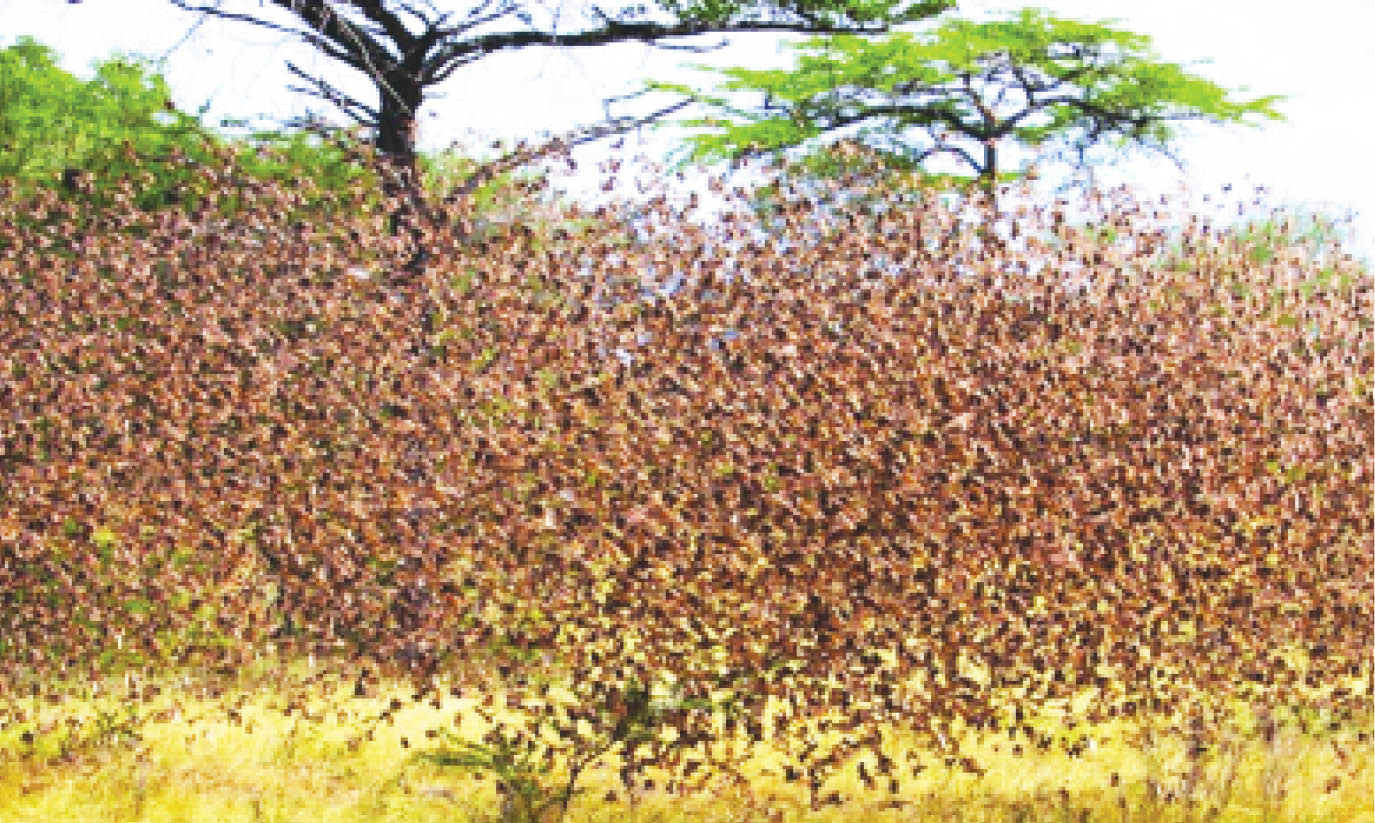In response to the negative effects of Boko Haram insurgency, the Borno State Government has rolled out an agricultural resuscitation programme aimed at ensuring food security for returnee-communities and rebasing the economy for post-insurgency prosperity.
The aim is to drastically reduce the dependence of Borno’s population (an essentially IDP population) on government, international agencies and non-governmental organisations (NGOs) for food.
This is also part of the government’s determination to bring displaced inhabitants back home and assist in ensuring their own security in the belief that the arrangement would orchestrate the gradual fizzling out of Boko Haram.
Subsequently, the government has, among other things, mobilised a set of no fewer than 5,000 farmers to grow Masakwa sorghum, called firgi, mostly cultivated in six local government areas of Dikwa, Mafa, Ngala, Gwoza, Bama and Kala-Balge.
Most of these farmers are returnees willing to resume farming in their home communities to enable them commence farming, with the government assisting them through its Ministry of Agriculture and Natural Resources, with a token for logistics.
For example, apart from cultivating this breed of sorghum in its own tens of thousands of hectares across these local government areas, the government has assisted each of the 2,500 farmers in Dikwa, Mafa and Gwoza local government areas with N5,000 for this purpose for the 2020 cropping season.
However, quelea birds seem to be consorting with the terrorists lurking in the surrounding bushes to torment the farmers 24 hours daily and frustrate all plans for food sufficiency for the returnee communities.
The farmers usually stay away from their farms from the early afternoons to the mid-morning, however how close their farms are to their communities or military formations, for fear of being killed by Boko Haram. But the quelea birds, unleashing a new type of torment, now play hide-and-seek with the farmers.
By security rules, the farmers only leave their homes for the fields by 8am and leave by 3pm, providing a comparatively secure time range for farming activities.
However, between 6am and 8am every day, the birds usually flood the sorghum fields and feast on the ripening grains, but retreat into hiding any moment after 8am to 3pm, either around any water spot or anywhere in the bush. Between 8am and 3pm, therefore, the farmers would only be occupied with the task of scaring away the comparatively few intrepid birds.
Between 5pm to 6pm, after the farmers must have retired home, the destructive birds would resume on the sorghum fields for dinner. This hide-and-seek game has, naturally, been to the disadvantage of the farmers and government, by the fact that the damage by the birds substantially affects their harvest.
“Government hopes to harvest about 7,000 tonnes from this 10,000ha farm,” the commissioner for agriculture and natural resources in Borno State, Bukar Talba, an engineer, told Daily Trust on Sunday while inspecting government’s Mafa Farm. He explained that, “If quelea birds had not descended on the farm, our harvest should double the 7,000,or even more.”
A farmer, Alhaji Bulama Isa Mafa, explained the ordeal of the farmers thus: “The dry season firgi farming project started this year,” he said, disclosing that, “I harvested about 7 bags. I am grateful to Allah for that, but if the quelea birds had not feasted on the farm, I would have harvested more.”
Alhaji Bulama farmer said: “To scare away the birds you have to come at dawn, but with the ongoing Boko Haram terror, the military do not open the town gates until 8am, which means the farmer gets to the fields by 9am.
“By then, the birds would have done their worst between 6am and 8am and flown away. Between 8am and 3pm, the farmers go round their farms, shouting to scare away the few intrepid birds that remain to torment him.
“The farmers have to leave the farm by 3pm to enable them reach home before the deadline for the closure of the gates, which is 5pm, after which no one goes in or out of town. That is when the birds return to the fields to continue their damage.”
Another farmer, Bukar Fannami, who cultivated five acres, said, “I harvested only four bags and I felt we shared the grains equally with the quelea birds because if they had not come, I would have harvested about 8 bags.”
Bukar explained his sordid experience with the birds: “From 9am you shout to scare the remaining birds away until about 1pm when you may enjoy some rest, because between 1pm and 2pm, they fly away to any nearby drinking spot.
“The birds seem to enjoy the security arrangement, which makes the farmer dare not come to his farm at dawn or stay until evening for fear of being slaughtered by the terrorists, who roam the bushes freely within those times.”
Amidst this challenge, however, the commissioner for agriculture, who said no one could do anything about the birds, announced the determination of government to achieve food security for returnee communities by cultivating government-owned farms all-year-round.
“After the sorghum is harvested, rice will be cultivated in government’s firgi farms in all the six local government areas,” he said, stressing that “the farms will be cropped all-year-round.”

 Join Daily Trust WhatsApp Community For Quick Access To News and Happenings Around You.
Join Daily Trust WhatsApp Community For Quick Access To News and Happenings Around You.


